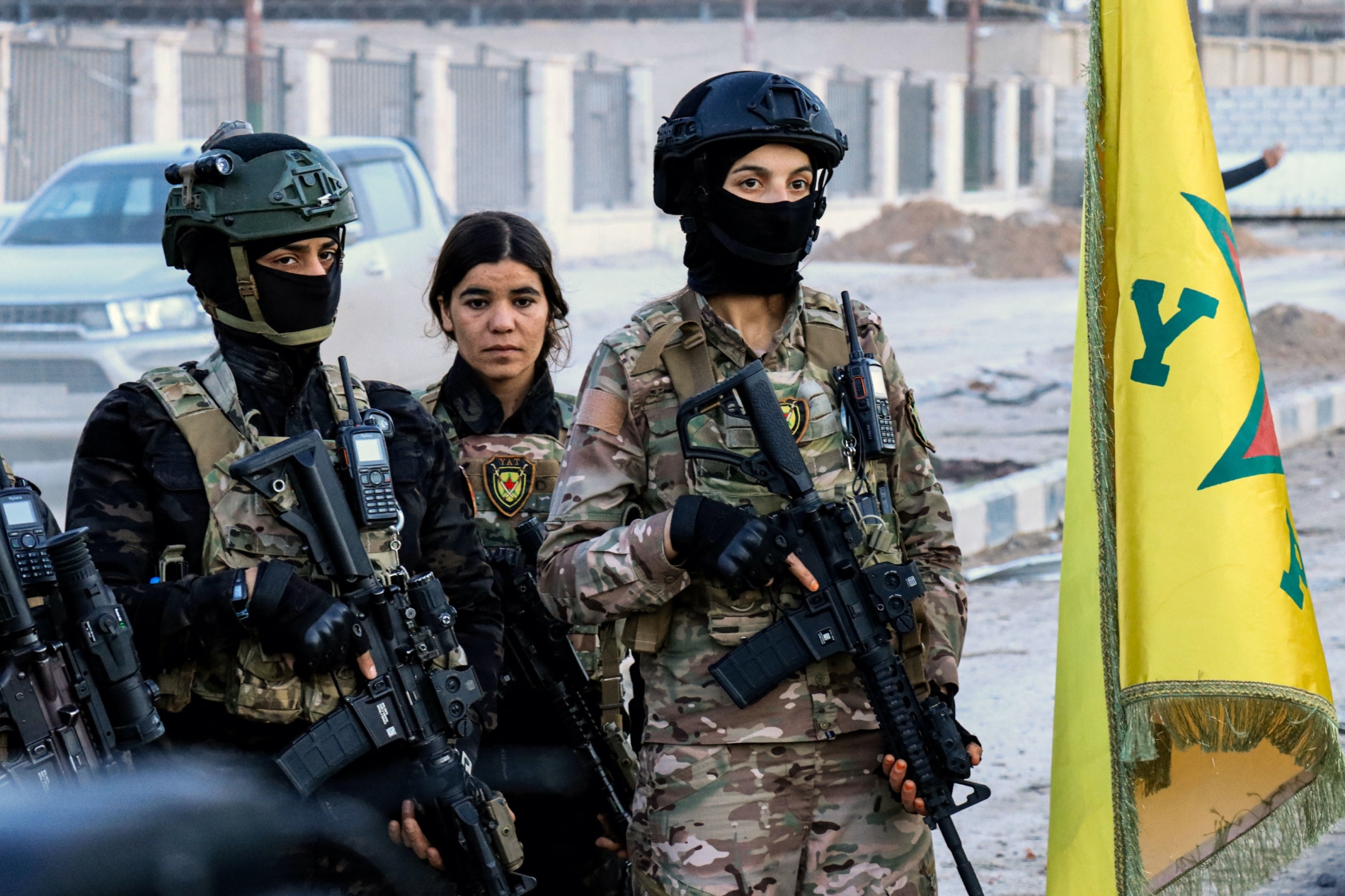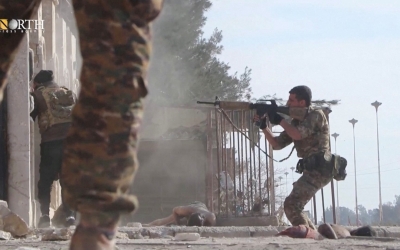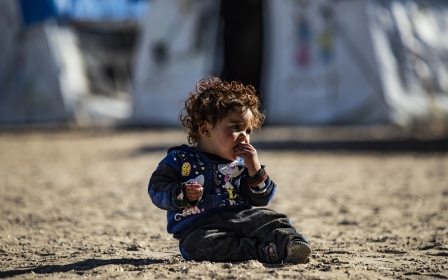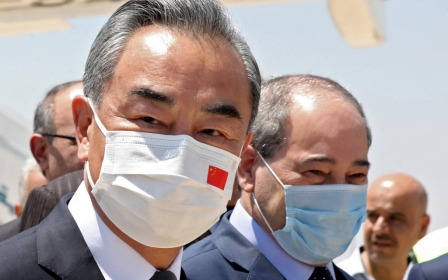Syria: Minors still detained in Hasakah prison attacked by IS

Minors are still being detained in the Kurdish-run prison in northeast Syria that was attacked last month by the Islamic State group, the United Nations said Sunday, calling their conditions “precarious”.
International rights groups, including Save the Children and Human Rights Watch, have previously said that 700 boys had been in the Ghwayran jail before the operation on 20 January.
New MEE newsletter: Jerusalem Dispatch
Sign up to get the latest insights and analysis on Israel-Palestine, alongside Turkey Unpacked and other MEE newsletters
Aged between 12 and 18, they include many who had adult relatives inside the prison and were transferred from nearby displacement camps housing thousands of children of militants.
"UNICEF met with some of the children still detained in the Ghwayran detention centre," the UN's child agency said in a statement.
"Despite some of the basic services now in place, the situation of these children is incredibly precarious," it added, without specifying how many minors were still detained.
Farhad Shami of the Kurdish-led Syrian Democratic Forces told AFP that "hundreds" of minors were still being held in Ghwayran, refusing to disclose an exact figure.
"They are being kept in a safe place," he said.
Around 3,500 prisoners were held at the al-Sinaa detention centre in the Ghwayran neighbourhood in Hasakah city, when, on 20 January, IS fighters rammed two explosives-packed vehicles into the facility, in one of the boldest attacks by the group in the region in recent years.
The IS prison break attempt triggered a week of clashes inside and around the jail in which hundreds died before Kurdish-led forces recaptured the jail.
It was the largest operation by IS in Syria since the group’s territorial defeat in 2019.
Sources in the SDF-linked Autonomous Administration of North and East Syria (AANES), which controls much of northeastern Syria, have indicated that there had been hundreds of boys being held by IS as human shields, which included more than 100 "non-Arabs".
Farhad told Middle East Eye last month that the minors held at the prison "have been trained on the jihadi ideology", though some were undergoing a rehabilitation programme.
Hundreds escaped
UNICEF said it was working to immediately provide care for the minors, adding that it "is ready to help support a new safe place in the northeast of Syria to take care of the most vulnerable children".
The SDF said in a statement on Sunday that UNICEF was the first UN agency granted permission to visit the jail since the attack.
"The delegation was provided with information on the status of the Daesh-linked teenagers," the SDF added, using an Arabic acronym for IS.
Video footage of the visit posted on social media networks showed around a dozen boys, many covered in blankets, in a prison cell.
Kurdish authorities have repeatedly blamed the international community for failing to support efforts to rehabilitate and repatriate children of IS fighters.
Kurdish authorities maintain that no prisoners escaped but the British-based Syrian Observatory for Human Rights on Sunday said that hundreds of militants had gotten away.
"Some of them have crossed to Turkey," the Observatory said.
"Others have arrived in areas held by Turkey-backed rebels in Aleppo's countryside, while some remained in hiding in zones controlled by the semi-autonomous Kurdish administration [inside Syria]," it added.
The Observatory, which relies on sources inside Syria, said the escapees include two senior leaders who are now residing in the Turkish-held Syrian town of Jarablus near the Turkish border.
On Thursday, a US raid killed IS leader Abu Ibrahim al-Qurashi in the town of Atme in the northwestern region of Idlib, Syria's last major opposition bastion.
Middle East Eye delivers independent and unrivalled coverage and analysis of the Middle East, North Africa and beyond. To learn more about republishing this content and the associated fees, please fill out this form. More about MEE can be found here.





